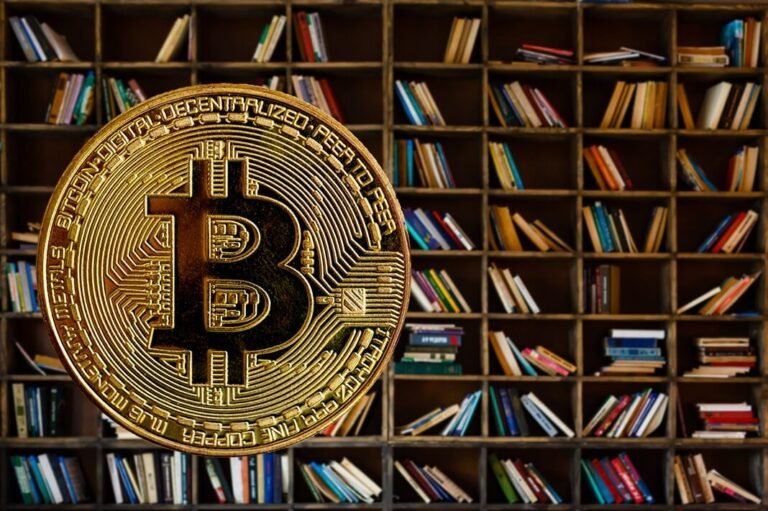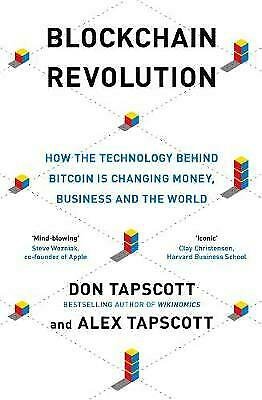Cryptocurrencies are reported almost daily in the established media, and their popularity is likely to grow in the coming years. In this article, we will focus on the best books on cryptocurrencies.
From a very narrow market to global financial strength, tokens like Bitcoin are used worldwide as a means of payment and a store of value. For all the people who have learned little about cryptocurrencies, there are still many people who know little about the sector.
Bitcoin literature: why read it?
A beginner who wants to learn about Bitcoin will be interested in " What is the best way to learn as much as you can about Bitcoin "Before he begins a deeper investigation. The answer to this question would ultimately direct individuals to credible bitcoin books for beginners.
The books offer a direct and tangible source of documentation on Bitcoin concepts to help you learn more about them. In addition, the books could help students explore topics beyond the basics of Bitcoin by delving into the practical implications of cryptocurrencies. Here is a list of the best books you can choose to learn more about Bitcoin, other cryptocurrencies, and the technology behind it all.
The best books on cryptocurrencies - our selection
For everyone who is still new to cryptocurrencies, there are some great resources available. Bitcoin was the first token to hit the markets in 2009, and since then the industry has evolved into a global payment solution that has the potential to do much more as development continues.
Here are some of the best books you can read in 2022 if you are trying to learn more about cryptocurrencies and what they can do for our world.
Mastering Bitcoin: Programming the Open Blockchain
from Andreas M. Antonopoulos
Bitcoin has been evolving for more than a decade, and in Mastering Bitcoin: Programming the Open Blockchain by Andreas M. Antonopoulos, readers are given a broad view of the important events that shaped what Bitcoin became, as well as many important events in its history. .
The book is published in the second edition and the author added relevant information to it, which will further educate the reader. As Bitcoin has received development support from the general community, the tools that work with bitcoins are still growing.
Antonopoulos begins his work by introducing readers to the basic concepts of Bitcoin in non-technical terms, which are ideal for people who are not interested in actually developing open source blockchain code structures. For managers who want to learn more about bitcoin, or investors who want to learn more about this sector, this is perfect.
It takes a closer look at how the blockchain that powers the bitcoin network works at the developer-centered level. With this approach, the author creates a book that can be used as an educational tool as well as a practical guide on how bitcoin-based development works.
The book then evaluates how the network works from a practical point of view, explains the peer-to-peer (P2P) nature of decentralized blockchain and how network transactions work. While many people think that bitcoin can be owned as a physical object, the author is working to give the public a solid explanation
The author has been working in the bitcoin space for many years and is also behind several successful technological start-ups. Antonopoulos holds degrees in computer science and data communications as well as distributed systems at UCL. He has started start-ups in New York, London and California.
As a developer, the author works with many platforms and sectors, including Bitcoin, cryptography, cloud computing, information security, data centers and Linux. He has supported three Bitcoin-specific businesses and continues to work in the growing world of cryptocurrencies. Antonopoulos also hosts "Let's Talk Bitcoin", an industrial source of information on the latest developments.
In addition to Mastering Bitcoin: Programming the Open Blockchain, Antonopoulos also wrote Mastering Bitcoin and The Internet of Money. His work is considered authoritative on the subject of Bitcoin and crypto and may be useful to people who are just entering this area or want to learn more about the technical side of the Bitcoin blockchain.
Antonopoulus' s book has its Czech translation in digital form.
Bitcoin standard: A decentralized alternative to central banking
from Dr. Saifedean Ammous
Bitcoin Standard: A decentralized alternative to central banking is the bitcoin literature providing an overview of what Bitcoin is and what it could mean for society as a whole. Bitcoin appeared as an obscure, however powerful idea. In the book Dr. Ammous is working on how bitcoin has become the answer to what many consider a world plagued by centralization.
Unlike many later cryptoplatforms, Bitcoin focused exclusively on the problem of money. People must be able to transfer value and save with a stable currency, and in modern times they have taken on the role of issuing this vital social asset to the central bank.
Dr. Ammous guides the reader through the history of money and shows the ideas that Bitcoin embodies in the digital age. Instead of using fiat currency, the author shows how powerful the idea of choice can be when transmitted over the internet. The author assumes that it is no coincidence that Bitcoin was created at a time when central banks became social planners after the crisis in 2008.
Systems, like Bitcoin's, are a very new technology, and according to the author, these new systems can make many other new social ideas viable. Bitcoin also undermines the idea that central banks plan the economic cycle through interest rates, another piece of money that many people consider unchanged.
Although these ideas may have seemed a hair's breadth a few years ago, the rush of large financial institutions to secure assets makes this book look prophetic.
Dr. Ammous earned a Ph.D. in Sustainable Development from Columbia University and also holds an MSc in Development Management from the London School of Economics and a Bachelor of Engineering from the American University of Beirut. In addition to writing, the author also teaches the economics of Bitcoin.
Blockchain Bubble or Revolution: The Present and Future of Blockchain and Cryptocurrencies
from Neel Mehta, Aditya Agashe et al.
Anyone looking to gain a comprehensive view of the blockchain development space should take a look at Blockchain Bubble or Revolution: The Present and Future of Blockchain and Cryptocurrencies. He is one of the best books on cryptocurrencies, and the authors are three professionals who have in-depth knowledge of the technology space and have worked for companies such as Google, IBM and Microsoft.
Gone are the days when Bitcoin was the only impressive decentralized blockchain platform, and this book does a great job of explaining where the sector is likely to go. The book begins with a look at how Bitcoin and blockchain work, from a perspective that does not require the reader to have deep technical knowledge.
From this foundation, the authors will guide the reader through the beginnings of Bitcoin and also explain how blockchain works, including definitions of commonly used terms to help readers get through the rest of the work. The authors look at blockchain applications and offer their views on when it makes sense to use technology or when it may not make sense to integrate a blockchain into a project.
The book will help the reader better understand how Ethereum differs from Bitcoin and how it could find a complementary role in the sector. In addition to Etherea, the authors also dive into some of the main stablecoins. There are many new technologies in the blockchain sector, and this book will provide the reader with a solid foundation for further research.
According to Mike Novogratz, the founder of Galaxy Investment Partners and a former partner of Goldman Sachs,
"Whether you're in cryptocurrencies of bear or bull, Bubble or Revolution perfectly formulates both sides of the argument and offers a well-researched look at the future of blockchain technology."
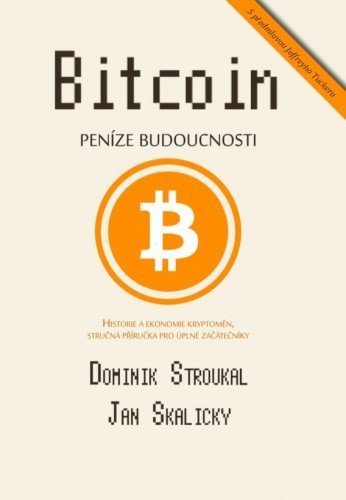
Bitcoin: Money of the future
from Dominik Stroukal & Jan Skalický
What is Bitcoin? What good is a virtual currency? Plus covered by nothing? Even paper money can be used in the stove when it is at its worst, virtual money will necessarily evaporate and nothing will be left. Is bitcoin just a game and a scam, or a major technological innovation?
None of this is true, the authors say. The more people use Bitcoin, the more they know it, the more they admire it. However, myths still survive and it is still difficult to find your way around if you want to know more. That is why the authors wrote this book in their own words.
The authors then also came up with an updated edition of their book. As the name Bitcoin and other cryptocurrencies of the future suggests, it is not just about Bitcoin, after all, there are a huge number of cryptocurrencies.
The publication serves as an analysis of the history and economics of cryptocurrencies, as well as a brief guide for complete beginners:
- The story of Bitcoin
- Bitcoin User Guide: Buying a Wallet, Where to Buy Bitcoin, How to Benefit from Bitcoin, How to Protect Bitcoin, How to Make Money on It, How to Be Anonymous
- Economics of Virtual Currencies: Economic Foundations of Bitcoin, Competitive Cryptocurrencies
- The Future of Bitcoin: Possible Problems, Regulation, New Markets, the War for Bitcoin
Dominik Stroukal is a Czech economist, cryptocurrency expert, former director of the Liberal Institute and former director of the Czech and Slovak Ludwig von Mises Institute. He currently teaches at the CEVRO Institute, and teaches economics at several secondary schools.
Jan Skalický studied computer science at the Faculty of Electrical Engineering of the Czech Technical University. He currently works as an enterprise architect and lecturer of programming courses. In addition to the positions of software development specialist and microcomputer systems, he also worked at the Temelín nuclear power plant. He lectures at professional conferences, is a supporter of classical liberalism and decentralized systems, including Bitcoin and other cryptocurrencies.
Blockchain Revolution: How The Technology Behind Bitcoin Is Changing Money, Business, and the World
from Don and Alex Tapscott
As we enter a new age of blockchain and decentralization, it is impossible to talk about Bitcoin and cryptocurrencies without mentioning the technology behind these innovations.
Blockchain Revolution is a useful read for all readers who want to learn more about the blockchain phenomenon. The book is written in three parts, including "Revolution," "Transformation," and "The Promise and Danger" of blockchain technology.
The first part explains the protocol behind the blockchain and its seven design principles: network integrity, distribution system, value as an incentive, security, privacy, property rights and inclusion.
The discussion focuses on blockchain as a powerful solution for improving financial services, protecting personal identities, businesses, individual contracts, and expanding and developing the Internet of Things using smart devices that can gather and share information.
Blockchain is in its early stages and its applications are not limited to cryptocurrencies. Any business with an electronic ledger can benefit from the technology. Tapscott's book helps the reader overcome skeptical concepts about blockchain and connects use cases of the technology.
While the book certainly explains blockchain technology, its goal is not a deeply technical explanation. Indeed, the book outlines several ways in which a blockchain can change the future of monetary systems, transactions and businesses.
Klaus Schwab, founder and executive chairman of the World Economic Forum, said:
"Sometimes there is a book that changes the global discourse. This will probably be one of those books. Blockchains are at the heart of the Fourth Industrial Revolution, and they explain to Tapscott why and how to seize opportunities and avoid danger. ”
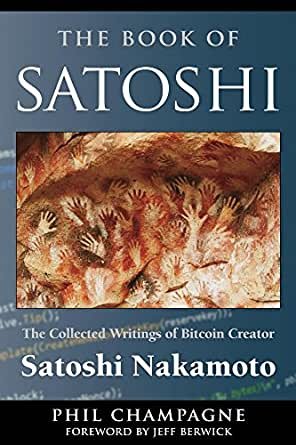
The Book of Satoshi: The Collected Writings of Bitcoin Creator Satoshi Nakamoto
from Phil Champagne
If you are a little familiar with cryptocurrency, you will be familiar with Satoshi Nakamoto - the father of Bitcoin. Although he is notable as the founder and owner of a huge fortune in BTC, no one knows the identity of this person or group.
Phil Champagne looks at the thought process of Bitcoin creator in his book The Book of Satoshi: The Collected Writings of Bitcoin Creator Satoshi Nakamoto.
Blockchain and bitcoin have an inseparable relationship, because bitcoin works through blockchain. If you are looking for a book with less technical and more conceptual knowledge, this is the right book for you.
Satoshi's book contains most of Nakamoto's important writings, including the original concept of Bitcoin, Nakamoto's explanation of how Bitcoin works, and e-mails and articles in chronological order published by Nakamoto.
There are also more conventional topics in the book, including central banking, regulatory and money supply issues that Bitcoin can help with.

The Infinite Machine
from Camilla Russo
Camila Russo, a former Bloomberg journalist who became the head of the leading DeFi publication The Defiant, is the author of The Infinite Machine: the first book on the history of the blockchain Ethereum. Carefully researched and expertly guided by The Infinite Machine, it is the thrilling story of the "army of cryptohackers", the eight founding members of Etherea.
Russo reveals how one of them, Charles Hoskinson, who later founded Cardano, had a completely different vision for Ethereum and how the main creator of Etherea, Vitalik Buterin, who was only 20 at the time, made fateful decisions that determined the future of a platform whose value today it exceeds $ 400 billion. Russo deftly describes the founding of Etherea, disputes, hacks, and hard forks, as well as its phenomenal growth and role in the future of the Internet, making the book a must-read for any Etherea or DeFi enthusiast. The book will soon be published in Czech translation and will soon be aimed at the silver screen, a film adaptation has been announced, which will be financed from the sale of the NFT.

Dark Web: Sex, drugs and bitcoins
from Dominik Stroukal
And once again Dominik Stroukal. In a book with a rather telling title, the author puts into perspective all sorts of assumptions and legends about Bitcoin and darknet markets. This is the only Czech book that deals with the issue of the dark web and hidden marketplaces.
The author reveals both the darker side of the dark web - ie the sale of goods and services related to human suffering - and the more positive one - the possibility of obtaining inaccessible drugs, the possibility of anonymizing journalists and dissidents, and the like.
Economic bubbles are remarkable for their scope: Dominik Stroukal has been dealing with bubbles for hundreds of years, from the Tulip Fever in 1634-1637, through panic in the 18th and 19th centuries, to the Great Depression, the Dotcom bubble and the mortgage crisis. What connects all these bubbles? Is this an inevitable consequence of capitalism? Or is the culprit a way to make money? Book Economic bubbles is great in that it explains the issues of the business cycle in a very comprehensible way, so the lesson is clear to every reader: "If we want the bubbles not to burst, we must not inflate them."
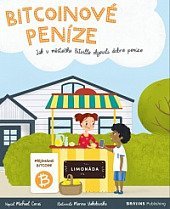
Bitcoin money
from Michael Caras
In 2019, Michael Caras wrote one of the few books that introduces Bitcoin to children. And Braiins Publishing translated this book into Czech! In the book subtitled "How Good Money Discovered in Bitville," small readers will learn about the problem of barter (direct exchange of goods) and the role that money plays in society. And why it depends on how precious money is.
You can find the book in PDF format for free download here.

Digital Gold
from Nathaniel Popper
Digital Gold is the great and captivating history of Bitcoin reporter New York Times Nathaniel Popper - the groundbreaking digital money and financial technology that spawned the global social movement.
The notion of cryptocurrency has been the target of many jokes, but that has not stopped it from growing into billions of dollars' worth of technology, backed by hordes of followers who are still coming and considering it the most important new idea since the rise of the Internet. People from Beijing to Buenos Aires see the potential for a financial system without banks and governments.
Nathaniel Popper's book begins with the early interactions between Nakamoto and his distant collaborators and then follows Bitcoin through iconic points of interest, such as the hack on the Mt. Gox and Silk Road Market. It also records the rise of big crypto players such as Erik Voorhees and the Winklevoss twins. If you already know relatively well the recent history of Bitcoin, then this is a very compelling way to fill an earlier gap.
This book stands out among other books on Bitcoin in one important difference: This book is the result of true journalism. The writer is not here to attract a crowd of people who are interested in the wealth of mining or investing in Bitcoin. But it does a very good job of mentioning all the key people and putting the events on the timeline starting on the first day, since the beginning of 2009.
He found out all the details about the life of the founder of Silk Road, he spoke to his ex-girlfriends. It describes, for example, the details of the "top-secret" meeting of Allen & Co. Tohle is journalism at its best, applied to a popular but difficult to understand current topic.
More about cryptocurrencies here
Conclusion
Top Posts Between most popular books, especially for beginners, provide sufficient resources to learn about them. Cryptocurrency books provide the most reliable and organized source of information about digital assets and how they work. The growing popularity of cryptocurrencies such as Bitcoin in recent years has certainly stimulated interest in learning about this technology.
However, the lack of a credible educational source could be a huge obstacle to public awareness of cryptocurrencies. Beginners could use books to learn more about their design, benefits, and how the blockchain works. Over time, you can move on and learn advanced concepts.
